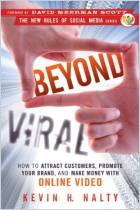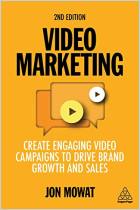
YouTube and Video Marketing
An Hour a Day
Read or listen offline
Amazon KindleRecommendation
Have you seen Blendtec’s entertaining “Will It Blend?” videos on YouTube? Founder Tom Dickson throws such items as marbles, running shoes, glow sticks, golf balls and iPhones into his company’s blenders and flips the on switch. People love these crazy videos so much that Blendtec’s YouTube channel has more than 200,000 subscribers. In this book, Internet video-marketing expert Greg Jarboe explains how you, too, can become a “viral video master” and profitably showcase your products on YouTube. The book is part of John Wiley & Son’s An Hour a Day series, which makes various undertakings less daunting by breaking them down into easy-to-manage, step-by-step tasks. Covering technical information, video marketing tactics, strategy development, campaign implementation and results measurements, Jarboe offers a well-illustrated yearlong workflow using 60 minutes daily for video marketing – though an hour seems more practical for some steps than others, like running a promotional campaign. getAbstract recommends his thorough manual to entrepreneurs and marketers of all types.
Summary
About the Author
Greg Jarboe founded and heads a firm that handles public relations, search engine optimization and video marketing.






















Comment on this summary